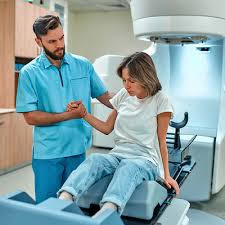Unlocking the Future of Health: The Ultimate Guide to Oncological Screening
Introduction
Health is wealth, and proactive measures are crucial in maintaining it. This guide explores the world of oncological screening, shedding light on the advances and challenges in this vital aspect of healthcare.
Oncological Screening in Saudi Arabia
Understanding Oncological Screening
Oncological screening involves a set of medical tests and examinations designed to detect cancer at its earliest stages. These screenings are essential because cancer is often more treatable and manageable when detected in its initial phases.
The Importance of Early Detection
Early detection can significantly increase the chances of successful cancer treatment. It can mean the difference between a full recovery and a more complicated and costly treatment journey.
Traditional Screening Methods
4.1 Mammography
Mammography is a well-known method for breast cancer screening. It uses X-rays to identify abnormalities in breast tissue.
4.2 Pap Smear
Pap smear tests are commonly used for cervical cancer screening. They involve collecting cells from the cervix to check for abnormalities.
4.3 Prostate-Specific Antigen (PSA) Test
The PSA test is used to screen for prostate cancer by measuring the levels of a specific protein in the blood.
Advancements in Oncological Screening
Recent years have seen remarkable advancements in oncological screening techniques.
5.1 Genetic Testing
Genetic testing can identify individuals with a higher genetic predisposition to certain types of cancer, allowing for tailored screening and preventive measures.
5.2 Liquid Biopsy
Liquid biopsy is a non-invasive method that detects cancer-related genetic mutations and alterations through a simple blood test.
5.3 Artificial Intelligence in Screening
Artificial intelligence is revolutionizing cancer screening by analyzing vast amounts of data to identify potential risks and patterns.
The Role of Lifestyle in Cancer Prevention
A healthy lifestyle, including a balanced diet, regular exercise, and avoiding tobacco and excessive alcohol consumption, can significantly reduce the risk of cancer.
Accessibility and Affordability
Ensuring that oncological screening is accessible and affordable to all is a critical challenge that healthcare systems worldwide are addressing.
The Future of Personalized Screening
Personalized screening plans, based on an individual's risk factors, genetics, and medical history, are expected to become the norm, improving the accuracy and effectiveness of cancer screening.
Support and Counseling
Emotional and psychological support are essential components of cancer screening and diagnosis, helping individuals cope with the emotional burden of the process.
Cancer Screening Challenges in Underserved Communities
Disparities in access to healthcare services and screening exist, and addressing them is essential for equitable cancer care.
Global Initiatives
Numerous organizations and initiatives are working tirelessly to promote cancer awareness, prevention, and early detection on a global scale.
The Psychological Aspect of Screening
The fear and anxiety associated with cancer screening are real, but education and support can help individuals overcome these emotional barriers.
Breaking the Stigma
Overcoming the stigma around cancer and screening is crucial in encouraging more people to prioritize their health and get screened regularly.
Conclusion
Oncological screening is the cornerstone of early cancer detection and prevention. Embracing the latest advancements and breaking down barriers will ensure a healthier future for all.



Comments
Post a Comment